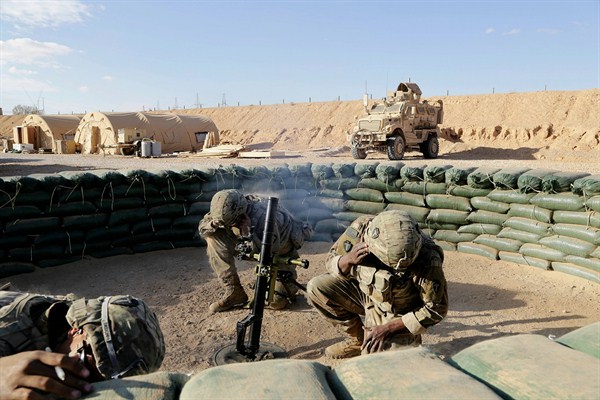This week marked the 15th anniversary of the U.S. invasion of Iraq, which was ostensibly launched to make the Middle East more secure. By any measure, it failed to do that. The region is significantly more unstable now than it was then and shows every sign of remaining that way. A few thousand miles from Iraq, American troops continue fighting and dying in Afghanistan. Victory there—at least as it was envisioned when U.S. forces first arrived in 2001—remains elusive. So is the global defeat of the Islamist extremist movements that caused the United States to get involved in Iraq and Afghanistan in the first place, as well as in many other nations on a smaller scale.
Frustration with this state of affairs has pushed Americans to ask why their country no longer seems to win wars. “When I was young, in high school and college, everybody used to say ‘we haven’t lost a war’—we never lost a war,” President Donald Trump told the National Governors Association in February 2017. “And now we never win a war. We never win.”
Everyone who grapples with this issue seems to have an explanation. Some blame weak leadership in the White House, usually when it is occupied by the opposite political party of the person casting blame. Some point to what they consider a failure to spend enough on defense or a propensity to spend on the wrong things. Others see a broader loss of national will, a softening of the American character. Still others with more reactionary views attribute it to “political correctness,” meaning an unwillingness to kill enough adversaries or treat all Muslims as enemies.

